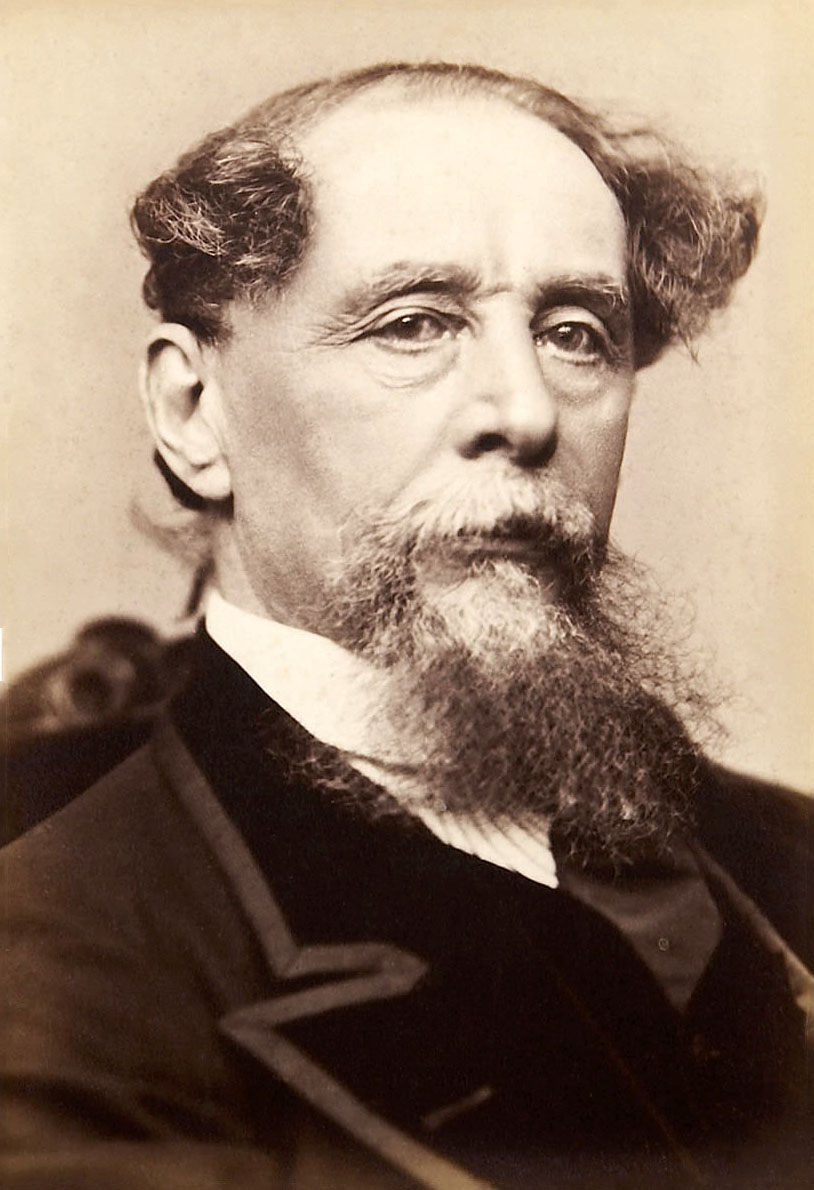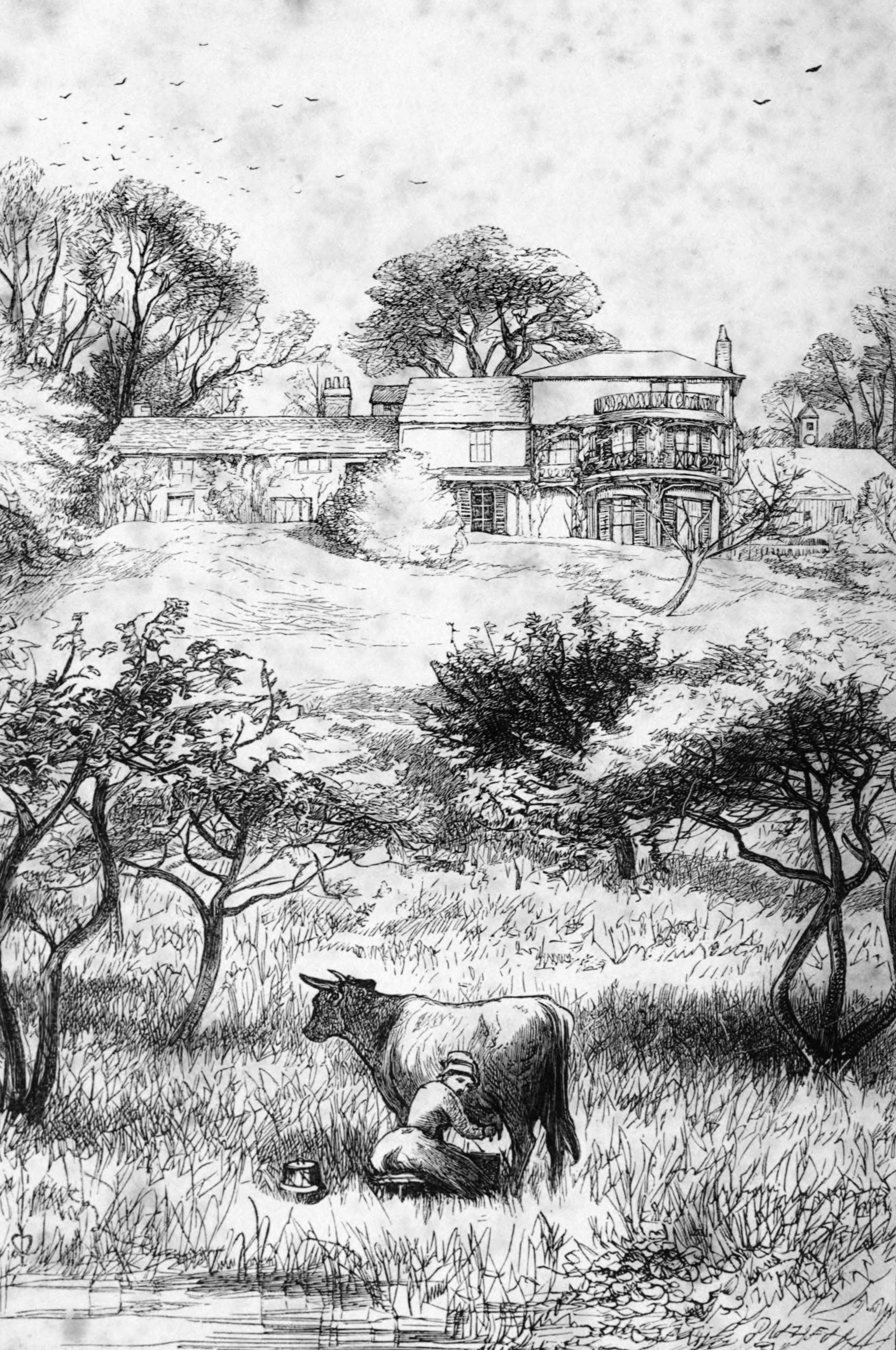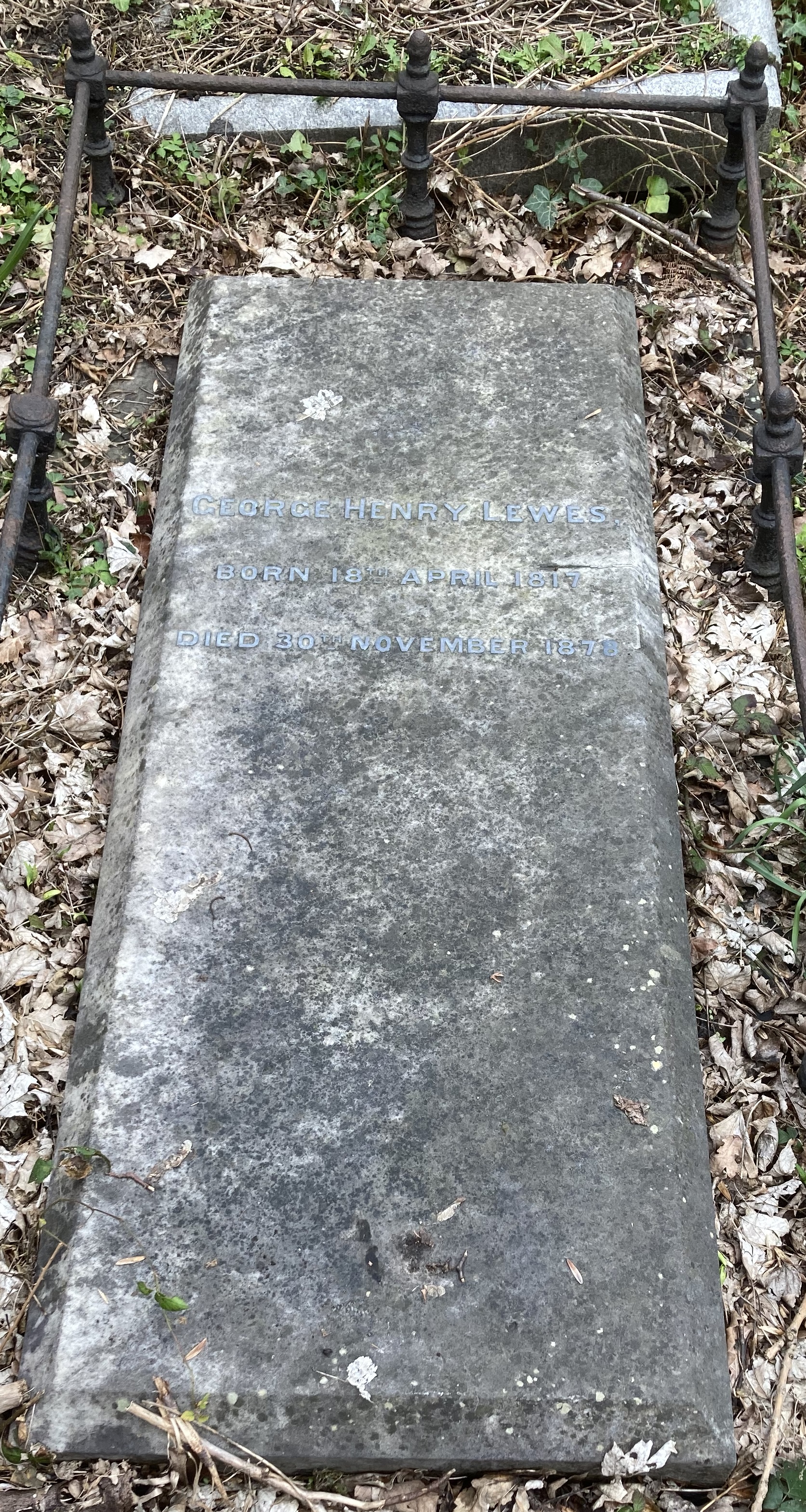|
Frederic Chapman
Frederic Chapman (1823 – 1 March 1895) was a publisher of the Victorian era who became a partner in Chapman & Hall, who published the works of Charles Dickens and Robert Browning and Elizabeth Barrett Browning, among others. Early years Frederic Chapman was the youngest son of Michael and Mary Chapman of Hitchin in Hertfordshire. He was born at Cork Street, Hitchin, in 1823, in the house which had belonged to his collateral ancestor, George Chapman, the poet, and was educated at Hitchin Grammar School. At the age of eighteen he was employed as a clerk at Chapman & Hall, publishers, a firm founded in 1834, of which his cousin, Edward Chapman, was the head. The publishing house was then at 186 Strand. In 1850 it was removed to 193 Piccadilly, and it finally, in March 1881, took up its quarters in Henrietta Street, Covent Garden. Joins Chapman & Hall On the death of William Hall (of Chapman & Hall) in March 1847 Frederic Chapman began his progress in the company, becoming ... [...More Info...] [...Related Items...] OR: [Wikipedia] [Google] [Baidu] |
Hitchin
Hitchin () is a market town and unparished area in the North Hertfordshire Districts of England, district in Hertfordshire, England, with an estimated population of 35,842. History Hitchin is first noted as the central place of the Hicce people, a tribe holding 300 Hide (unit), hides of land as mentioned in a 7th-century document,Gover, J E B, Mawer, A and Stenton, F M 1938 ''The Place-Names of Hertfordshire'' English Place-Names Society volume XV, 8 the Tribal Hidage. Hicce, or Hicca, may mean ''the people of the horse.'' The tribal name is Old English and derives from the Middle Angles, Middle Anglian people. It has been suggested that Hitchin was the location of 'Councils of Clovesho, Clofeshoh', the place chosen in 673 by Theodore of Tarsus the Archbishop of Canterbury during the Synod of Hertford, the first meeting of representatives of the fledgling Christianity, Christian churches of Anglo-Saxon England, to hold annual synods of the churches as Theodore attempted to conso ... [...More Info...] [...Related Items...] OR: [Wikipedia] [Google] [Baidu] |
The Old Curiosity Shop
''The Old Curiosity Shop'' is one of two novels (the other being ''Barnaby Rudge'') which Charles Dickens published along with short stories in his weekly serial ''Master Humphrey's Clock'', from 1840 to 1841. It was so popular that New York readers stormed the wharf when the ship bearing the final instalment arrived in 1841. ''The Old Curiosity Shop'' was printed in book form in 1841. The plot follows the life of Nell Trent and her grandfather, both residents of The Old Curiosity Shop in London. Queen Victoria read the novel in 1841 and found it "very interesting and cleverly written". Plot Background The events of the book seem to take place around 1825. In Chapter 29, Miss Monflathers refers to the death of George Gordon Byron, 6th Baron Byron, Lord Byron, who died on 19 April 1824. When the inquest rules (incorrectly) that Quilp committed suicide, his corpse is ordered to be burial at cross-roads, buried at a crossroads with a stake through the heart, a practice banned ... [...More Info...] [...Related Items...] OR: [Wikipedia] [Google] [Baidu] |
Anthony Trollope
Anthony Trollope (; 24 April 1815 – 6 December 1882) was an English novelist and civil servant of the Victorian era. Among his best-known works is a series of novels collectively known as the '' Chronicles of Barsetshire'', which revolves around the imaginary county of Barsetshire. He also wrote novels on political, social, and gender issues, and other topical matters. Trollope's literary reputation dipped somewhat during the last years of his life, but he had regained the esteem of critics by the mid-20th century. Biography Anthony Trollope was the son of barrister Thomas Anthony Trollope and the novelist and travel writer Frances Milton Trollope. Though a clever and well-educated man and a Fellow of New College, Oxford, Thomas Trollope failed at the Bar due to his bad temper. Ventures into farming proved unprofitable, and he did not receive an expected inheritance when an elderly childless uncle remarried and had children. Thomas Trollope was the son of Rev. (Thomas) Ant ... [...More Info...] [...Related Items...] OR: [Wikipedia] [Google] [Baidu] |
William Leonard Courtney
William Leonard Courtney (1850 – 1 November 1928) was an English (people), English author, philosopher and journalist whose 38-year career encompassed work on the ''Daily Telegraph'' and ''Fortnightly Review''. Early life and education Courtney was born at Pune, Poona, India, the youngest of three sons and three daughters born to William Courtney, of the Indian Civil Service, and Ann Edwardes, daughter of Captain Edward Scott, Royal Navy, RN. He was educated at Merton College, Oxford, where he was a contemporary of F H Bradley. Career In 1873, he became headmaster of Somersetshire College, Bath, Somerset, Bath. Returning to New Oxford in 1876 he became a tutor in philosophy at New College, Oxford, New College, where his essays on Plato gained attention. Philosophical studies such as ''The Metaphysics of John Stuart Mill'' (1879), ''Studies in Philosophy'' (1882), and ''Constructive Ethics'' (1886) were written during this period. With Benjamin Jowett he helped with the fo ... [...More Info...] [...Related Items...] OR: [Wikipedia] [Google] [Baidu] |
Frank Harris
Frank Harris (14 February 1855 – 26 August 1931) was an Irish-American editor, novelist, short story writer, journalist and publisher, who was friendly with many well-known figures of his day. Born in Ireland, he emigrated to the United States early in life, working in a variety of unskilled jobs before attending the University of Kansas to study law. After graduation, he quickly tired of his legal career and returned to Europe in 1882. He traveled in continental Europe before settling in London to pursue a career in journalism. In 1921, in his sixties, he became a US citizen. Though he attracted much attention during his life for his irascible, aggressive personality, editorship of famous periodicals, and friendship with the talented and famous, he is remembered mainly for his multiple-volume memoir ''My Life and Loves'', which was banned in countries around the world for its sexual explicitness. Biography Early years Harris was born James Thomas Harris in 1855, in Galway, Ir ... [...More Info...] [...Related Items...] OR: [Wikipedia] [Google] [Baidu] |
John Morley
John Morley, 1st Viscount Morley of Blackburn, (24 December 1838 – 23 September 1923) was a British Liberal statesman, writer and newspaper editor. Initially, a journalist in the North of England and then editor of the newly Liberal-leaning ''Pall Mall Gazette'' from 1880 to 1883, he was elected a Member of Parliament for the Liberal Party in 1883. He was Chief Secretary for Ireland in 1886 and between 1892 and 1895; Secretary of State for India between 1905 and 1910 and again in 1911; and Lord President of the Council between 1910 and 1914. Morley was a distinguished political commentator, and biographer of his hero, William Gladstone. Morley is best known for his writings and for his "reputation as the last of the great nineteenth-century Liberals". He opposed imperialism and the Second Boer War. He supported Home Rule for Ireland. His opposition to British entry into the First World War as an ally of Russia led him to leave the government in August 1914. Background and ... [...More Info...] [...Related Items...] OR: [Wikipedia] [Google] [Baidu] |
George Henry Lewes
George Henry Lewes (; 18 April 1817 – 30 November 1878) was an English philosopher and critic of literature and theatre. He was also an amateur physiologist. American feminist Margaret Fuller called Lewes a "witty, French, flippant sort of man". He became part of the mid- Victorian ferment of ideas which encouraged discussion of Darwinism, positivism, and religious skepticism. However, he is perhaps best known today for having openly lived with Mary Ann Evans, who wrote under the pen name George Eliot, as soulmates whose lives and writings were enriched by their relationship, though they never married each other. Biography Lewes, born in London, was the illegitimate son of the minor poet John Lee Lewes and Elizabeth Ashweek, and the grandson of comic actor Charles Lee Lewes. His mother married a retired sea captain when he was six. Frequent changes of home meant he was educated in London, Jersey, Brittany, and finally at Dr Charles Burney's school in Greenwich. Having abandon ... [...More Info...] [...Related Items...] OR: [Wikipedia] [Google] [Baidu] |
The Fortnightly Review
''The Fortnightly Review'' was one of the most prominent and influential magazines in nineteenth-century England. It was founded in 1865 by Anthony Trollope, Frederic Harrison, Edward Spencer Beesly, and six others with an investment of £9,000; the first edition appeared on 15 May 1865. George Henry Lewes, the partner of George Eliot, was its first editor, followed by John Morley. The print magazine ceased publication in 1954. An online "new series" started to appear in 2009. History ''The Fortnightly Review'' aimed to offer a platform for a range of ideas, in reaction to the highly partisan journalism of its day. Indeed, in announcing the first issue of the ''Fortnightly'' in the ''Saturday Review'' of 13 May 1865, G. H. Lewes wrote, "The object of ''THE FORTNIGHTLY REVIEW'' is to become the organ of the unbiassed expression of many and various minds on topics of general interest in Politics, Literature, Philosophy, Science, and Art." But by the time Lewes left due to ... [...More Info...] [...Related Items...] OR: [Wikipedia] [Google] [Baidu] |
Dickens Gurney Head
Charles John Huffam Dickens (; 7 February 1812 – 9 June 1870) was an English writer and social critic. He created some of the world's best-known fictional characters and is regarded by many as the greatest novelist of the Victorian era.. His works enjoyed unprecedented popularity during his lifetime and, by the 20th century, critics and scholars had recognised him as a literary genius. His novels and short stories are widely read today. Born in Portsmouth, Dickens left school at the age of 12 to work in a boot-blacking factory when his father was incarcerated in a debtors' prison. After three years he returned to school, before he began his literary career as a journalist. Dickens edited a weekly journal for 20 years, wrote 15 novels, five novellas, hundreds of short stories and non-fiction articles, lectured and performed readings extensively, was an indefatigable letter writer, and campaigned vigorously for children's rights, for education, and for other social ref ... [...More Info...] [...Related Items...] OR: [Wikipedia] [Google] [Baidu] |
Ovington Square
Ovington Square is a garden square in central London's Knightsbridge district. It lies between Brompton Road to the north-west (reached via Ovington Gardens) and Walton Street to the south-east. History The freehold property on which the square is built was owned by Frederick, Baron von Zandt of Würzburg, Germany, and after his death was developed in 1844 by his widow, Elizabeth Standerwick, of Ovington House in Hampshire. The houses surrounding the green were built from 1844 to 1850 by W.W. Pocock. The south side of the square, 1–35, and number 34 on the north side are grade II listed, as are 37–43 and 36–42 on the road into the square. The green itself was secured soon after development, protected under the 1851 Garden Square Act and maintained under the Kensington Improvement Act 1851. Responsibility for the garden passed to Trustees following a settlement made by Sir John Swinnerton Dyer in 1912. Notable buildings and residents * #10 was home to the London Buddhis ... [...More Info...] [...Related Items...] OR: [Wikipedia] [Google] [Baidu] |
Percy Fitzgerald
Brigadier-General Percy Desmond FitzGerald, (18 April 1873 – 17 August 1933) was a cavalry officer in the British Army and a sportsman, playing polo and cricket at competition levels. Born in Australia, he moved to Great Britain and joined the army, initially serving in the Buffs (Royal East Kent Regiment), and then the 11th (Prince Albert's Own) Hussars. The highlight of his military career was as commander of the 5th Mounted Brigade during the Sinai and Palestine campaign. Civilian life Percy Desmond FitzGerald was born 18 April 1873 in St Kilda, Melbourne. He was the son of Nicholas FitzGerald and Marianne (née O'Shanassy). His father was member of the Parliament of Victoria, having moved there in 1859 and established the Castlemaine brewery. FitzGerald was educated at St Mary's College, Oscott. He became a first-class cricketer with the Marylebone Cricket Club in 1897, and a polo player competing several times for the Roehampton Trophy. In October 1914, during ... [...More Info...] [...Related Items...] OR: [Wikipedia] [Google] [Baidu] |
Thomas Carlyle
Thomas Carlyle (4 December 17955 February 1881) was a Scottish essayist, historian and philosopher. A leading writer of the Victorian era, he exerted a profound influence on 19th-century art, literature and philosophy. Born in Ecclefechan, Dumfriesshire, Carlyle attended the University of Edinburgh where he excelled in mathematics, inventing the Carlyle circle. After finishing the arts course, he prepared to become a minister in the Burgher Church while working as a schoolmaster. He quit these and several other endeavours before settling on literature, writing for the ''Edinburgh Encyclopædia'' and working as a translator. He found initial success as a disseminator of German literature, then little-known to English readers, through his translations, his ''Life of'' ''Friedrich Schiller'' (1825), and his review essays for various journals. His first major work was a novel entitled ''Sartor Resartus'' (1833–34). After relocating to London, he became famous with his ''French Rev ... [...More Info...] [...Related Items...] OR: [Wikipedia] [Google] [Baidu] |





.jpg)
